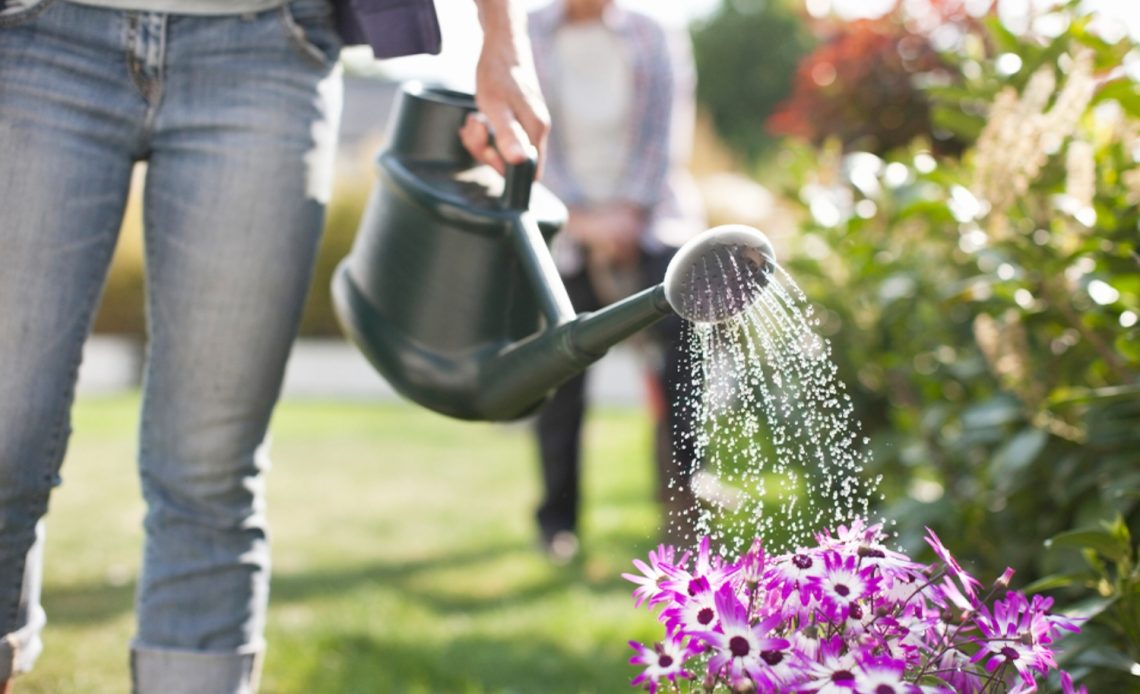

We’re here to help! Wild Yards is a completely free website that is 100% dedicated to helping you create a wildlife-friendly, sustainable yard. Read more
WildYards is reader-supported. When you buy a product through a link on our site, we may earn a comission. Every product is independently selected by our (obsessive) editors and our reviews are unbiased and objective. Read more about our mission or our privacy policy.
All plants need water to grow. Some plants, like lavender, are drought-resistant and can go weeks without water. Others, like weeping willow trees, need water every few days. Regardless of their water requirements, plants should be kept on a regular watering schedule to ensure they get enough hydration to stay healthy. But does the time of day really influence the way watering affects your plants? And, if so, when is the worst time to water plants?
Timing is key when it comes to watering plants. Nighttime is the worst time to water because there’s no sun to evaporate excess moisture. Allowing water to sit on the plant’s foliage promotes powdery mildew and other fungal diseases. It’s best to water your plants in the morning, so the sun can dry up the extra water.
When is the worst time to water plants growing outside?
You might think that the late evening and night hours would be the best time to water your outdoor plants because it gives them plenty of time to absorb the water without the sun evaporating it. But that’s exactly why you don’t want to water your plants at this time.
Once the sun sets, you should avoid watering your plants. When the sun goes down, there’s nothing to evaporate the extra water. Over time, the soil becomes overly moist and stagnant, the perfect breeding ground for bacterial and fungal overgrowth.
If you water your plants at night, you may start to notice mushrooms coming up around the base of them. Take a closer look at the mulch in your landscaping. Do you see mushrooms scattered here and there? These are good indicators that your soil is staying too moist, and that you should stop watering your plants at night, and cut back on your watering in general.
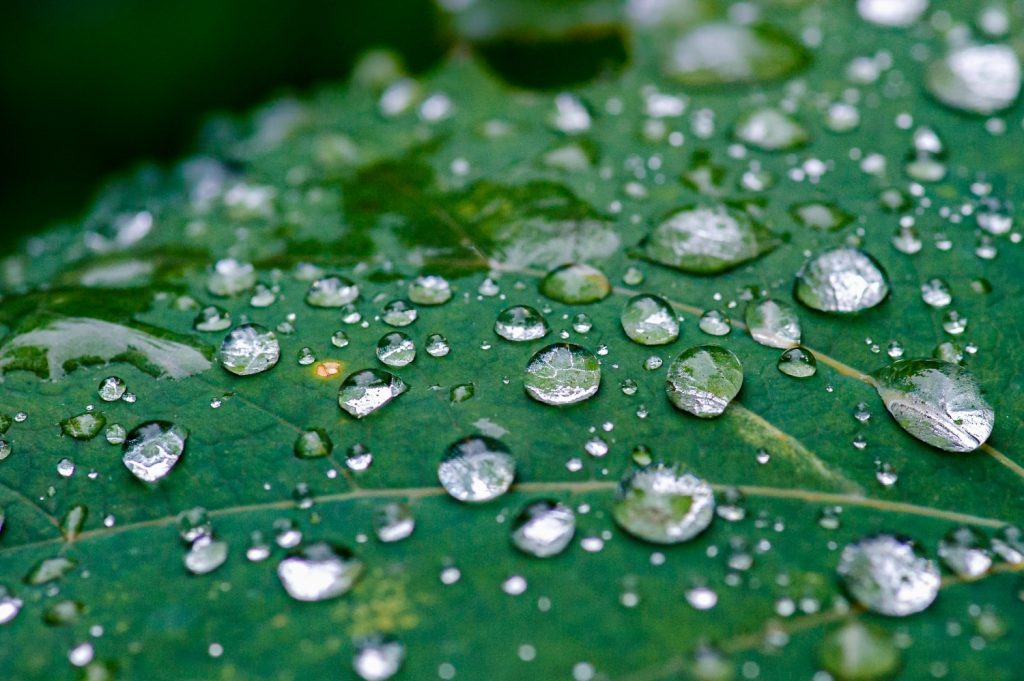
When is the worst time to water plants growing inside?
As with outdoor plants, you should avoid watering your house plants at night. Without sunlight to evaporate the extra water, moisture pools at the base of the plant, which promotes disease. If personal constraints prevent you from being able to water your indoor plants during the day, you can still water them at night. Just be sure to water them sparingly, and check their moisture level before giving them anything else to drink.
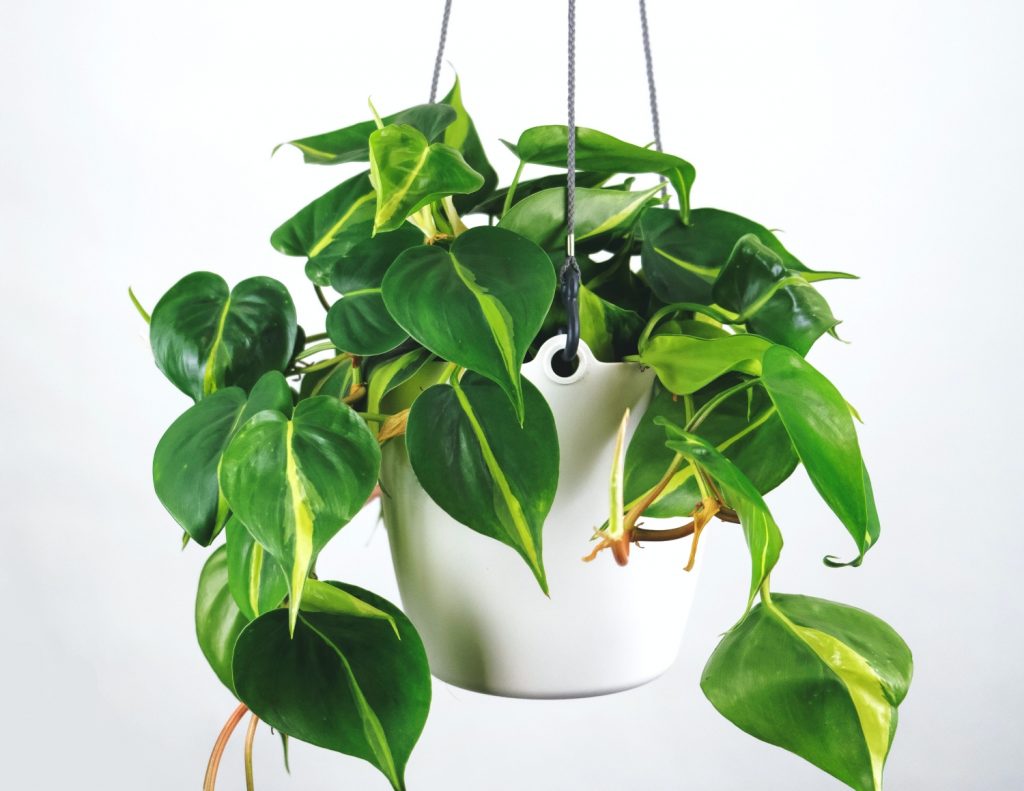
When is the best time to water your outside plants?
It’s best to water outdoor plants in the morning. Once the sun starts to rise, it’s safe to begin watering. You can also water at midday or even into the late afternoon hours. This way, there’s still enough time for those water droplets on your plant’s foliage to evaporate, so they don’t cause problems down the road.
Just be sure to stop watering when the sun begins to set. As things cool down for the night, excess water won’t drain off quickly enough. This can be highly problematic for plants that are prone to root rot, including drought-resistant herbs like rosemary, sage, and oregano.
Moisture-loving plants, on the other hand, might be more forgiving. While it’s always best to avoid watering at night if you can, mint, willow trees, spirea, vervain, and trumpet vine are generally very tolerant of excess moisture. If you only have time to tend to your plants in the evening hours, consider incorporating these plants into your landscaping.
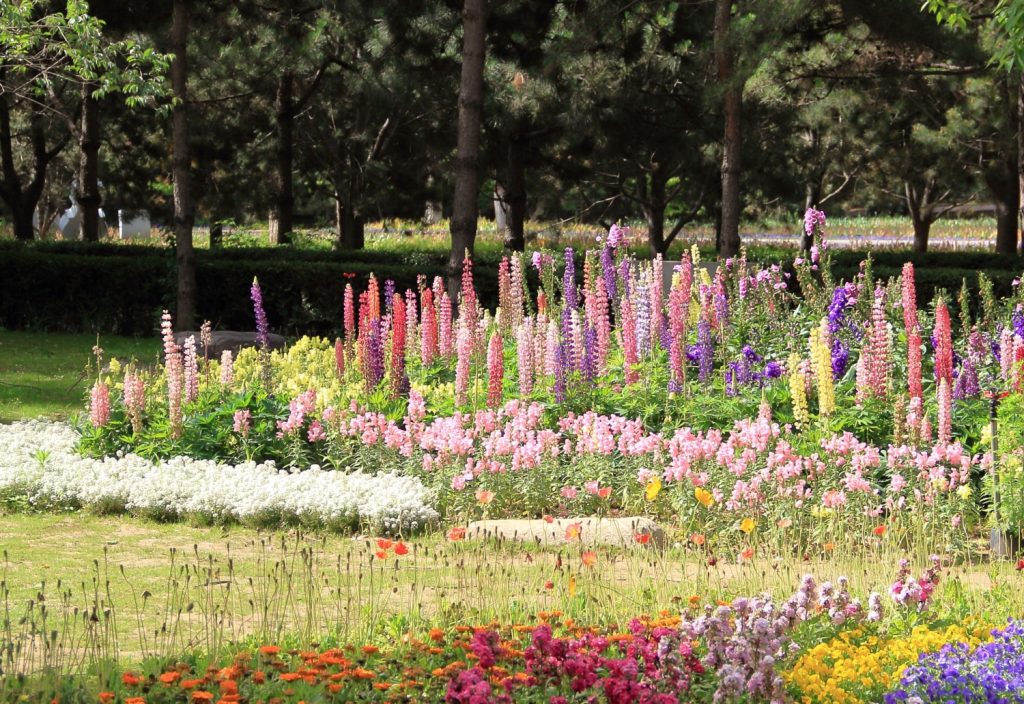
When is the best time to water your inside plants?
Inside plants should also be watered in the morning. This gives them plenty of opportunity to absorb all of the water they want before the sunlight dries up the excess. If you forget to water them in the morning, you can water them at lunchtime or in the afternoon hours.
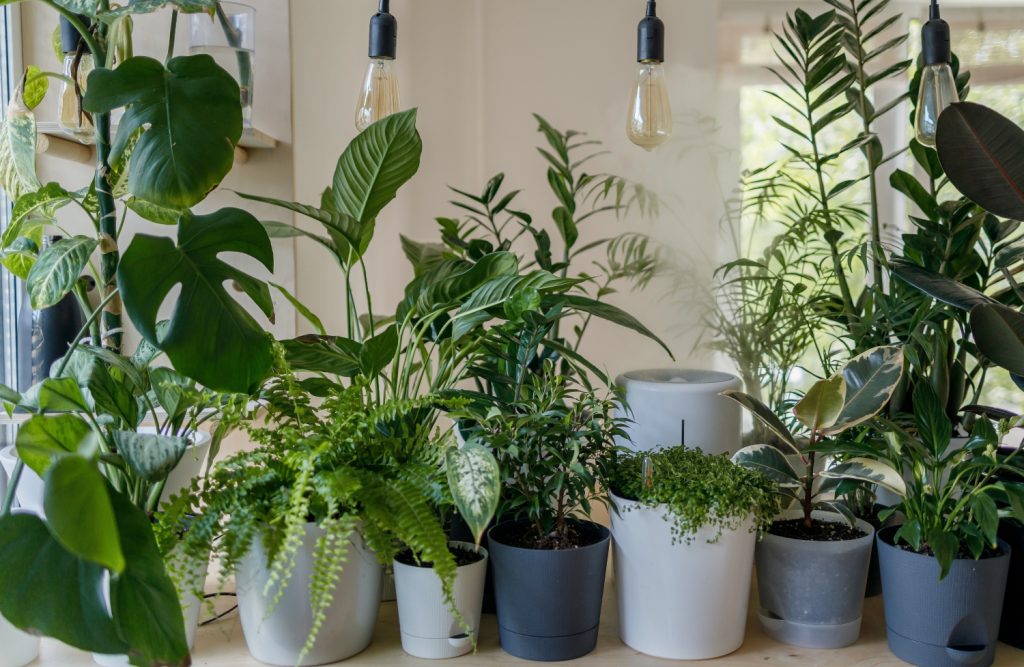
Will watering your plants at night kill them?
That depends on how often you do it. If you water your plants every single night, you’re probably not doing them any favors. While some plants can never seem to get enough water, most plants won’t appreciate all that hydration.
If you’ve been watering your plants at night routinely, and you’re beginning to notice yellow leaves or fuzzy spots on their foliage, they’re likely staying too moist. Turn off the soaker hose and let the soil dry up a bit to give your plants a chance to breathe.
Now, if you only water your plants at night every so often (maybe once a month), that’s fine. The flowers in your garden aren’t likely to die from one nighttime watering. After all, it’s not unheard of to get rain at night. As long as you adjust for it in your weekly watering schedule, your plants should be A-OK.
When should you water your plants during a drought?
When your ecoregion is going through a dry spell, it has a dramatic effect on your plants. Water stress can lead to reproductive failure, leaving your landscaping looking sparse. The longer your area goes without rain, the drier the ground gets, and not just the ground, but the air itself. With no moisture available to them, most plants will need you to water them more often.
When your region is going through a drought, the more severe it gets, the safer it is to water at night. In this situation, the sun becomes your garden’s adversary, evaporating moisture faster than your plants can use it. Watering in the late evening hours can be beneficial in this case because it gives your plants plenty of time to absorb water before the sun’s harsh rays can steal it away from them.
But, even though it’s safer to water at night during a drought, you should still be careful not to overwater your plants. Check the soil before watering. If the ground feels dry 1 or 2 inches down, then your plants could use another drink. Otherwise, wait for them to dry out a little more before watering them again.
When should you water plants if it’s humid outside?
If your region gets pretty humid during the spring and summer months, this can also affect the way your plants use water. With more moisture in the air, less water gets evaporated from the ground. This means most plants won’t need that much water — only small drinks periodically.
When it’s humid outside, test the soil surrounding your plants before watering them. And, although it’s safe to water them in the morning hours, you may want to wait until the sun heats things up a bit more. Midday to late afternoon, when the sun is at its hottest, are the best times to water when it’s humid outside.
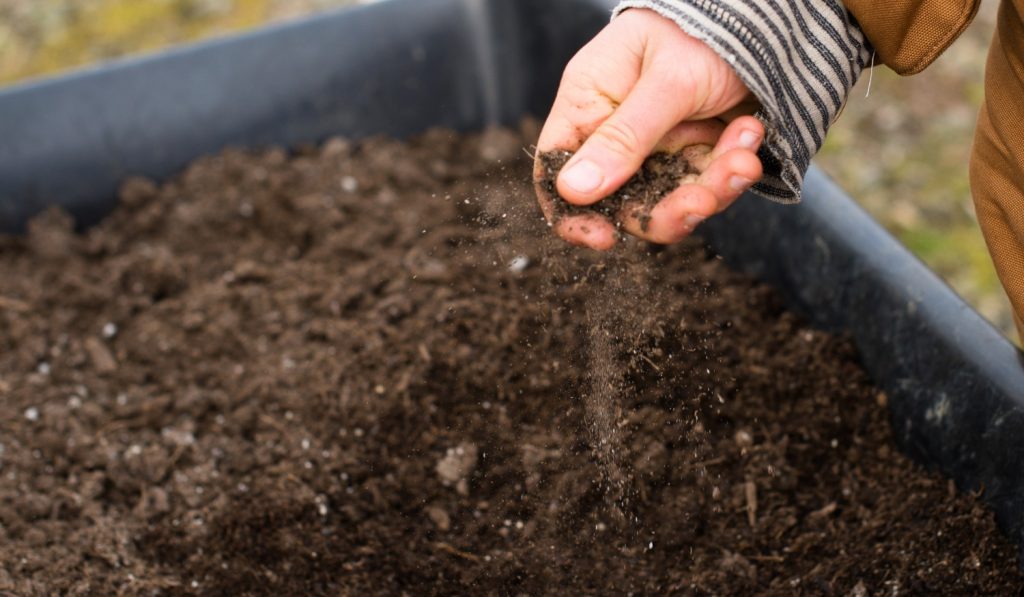
How often should you water your plants?
How often you should water your plants depends on the plant in question. It’s always best to research your plants ahead of time so you have a general idea of their growing requirements. But don’t be afraid to use your own judgment. If your plant’s care tag says it needs ½-inch of water every week and you watered it a week ago, but the soil is still moist, then let it dry out some more before giving it another drink.
Remember, this isn’t rocket science, so don’t make things harder than they need to be! Just take your cues from your plants. If they’re looking wilted or if their leaves are turning brown and crunchy, give them a drink, regardless of the time of day. Plants can be sensitive, but they’re also pretty forgiving. If you forget to water one morning, and your plants look worse for it, give them some water and a chance to recover before you start to panic.
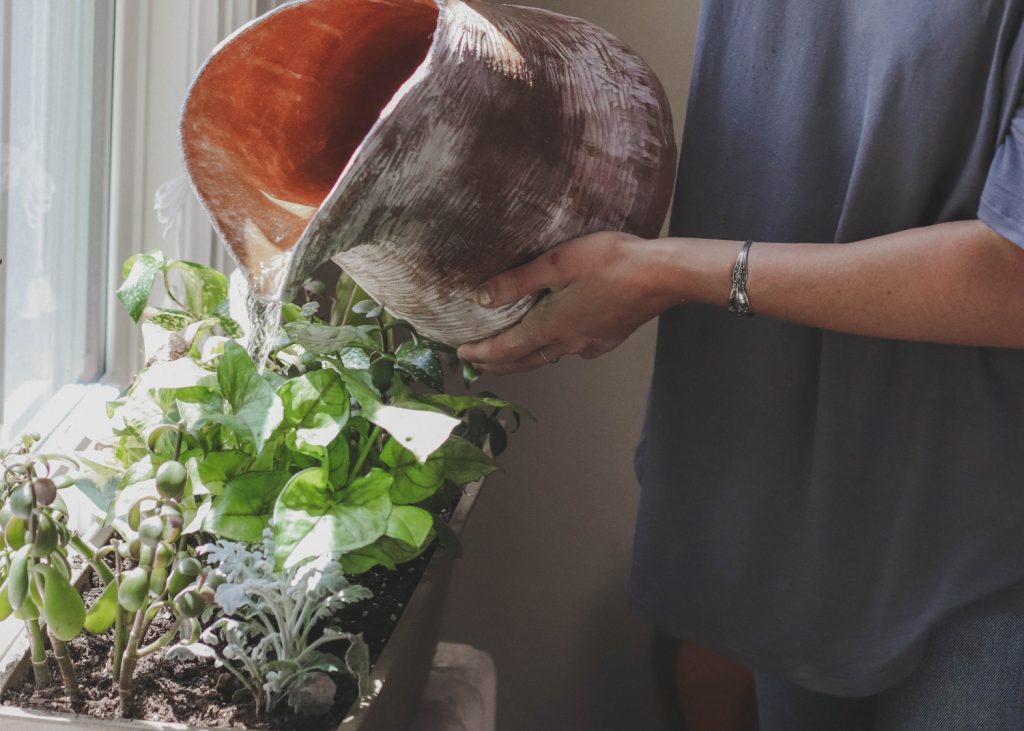
How should you water your plants?
When you water your plants is important, but how you water them matters just as much. Whether you use a hose or a watering can, it’s always best to water the base of the plant. Avoid getting water on the leaves and stems as much as possible. This will help prevent bacterial and fungal infections from developing.
When your region is receiving adequate rainfall, you may never need to water your plants. If your soil stays moist deep down, you should water sparingly, just enough to moisten the upper layer. But if things are dry, it’s best to water deeply, and only as often as is necessary. A good, soaking watering puts water farther in the ground where it won’t be baked out by the sun, so your plants can absorb it at their own pace.
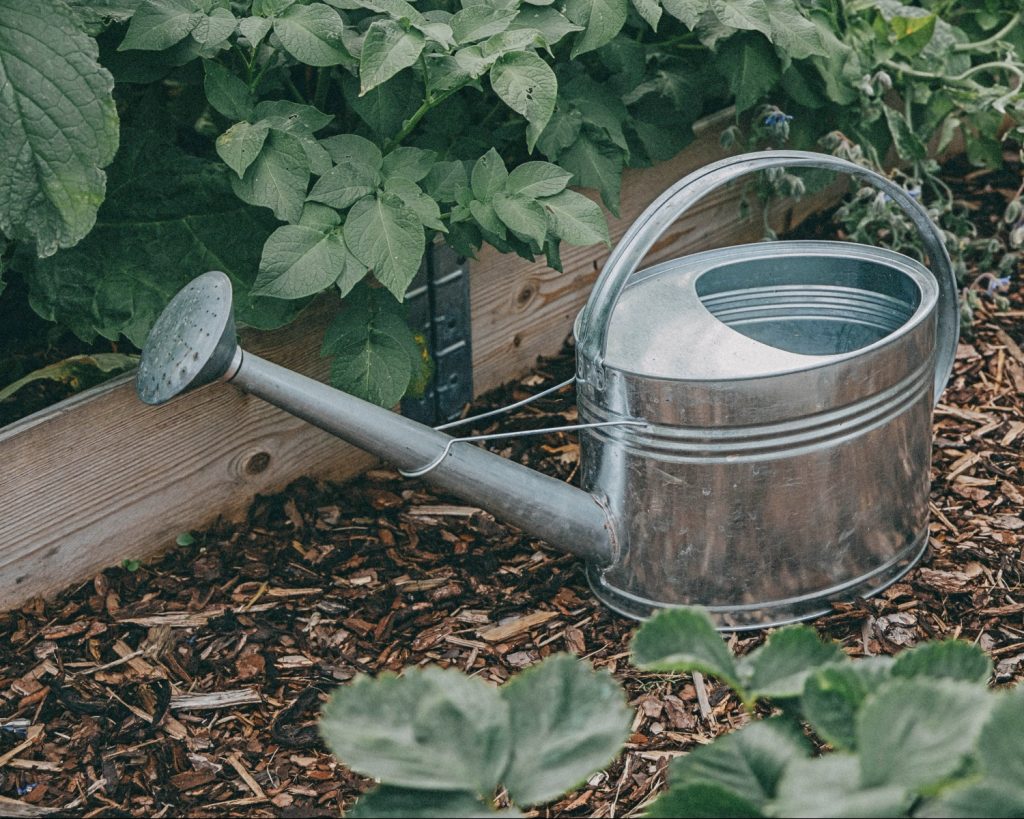
What kind of water should you use to water your plants?
Rainwater is always best. Because it’s been evaporated, it’s softer than groundwater and devoid of any minerals that may interfere with your plant’s growth. Rainwater is also highly oxygenated, so using it to water your plants will help prevent root rot.
If you live in a state where collecting rainwater is illegal, then using tap water to water your plants is the next best option. Installing a whole-house water softener can help remove minerals, making tap water more suitable for the plants in your garden.
However you choose to water your plants, keep a careful eye on them. Monitor their water intake and make the appropriate adjustments. This will help prevent diseases, keeping your plants in tip-top shape.
